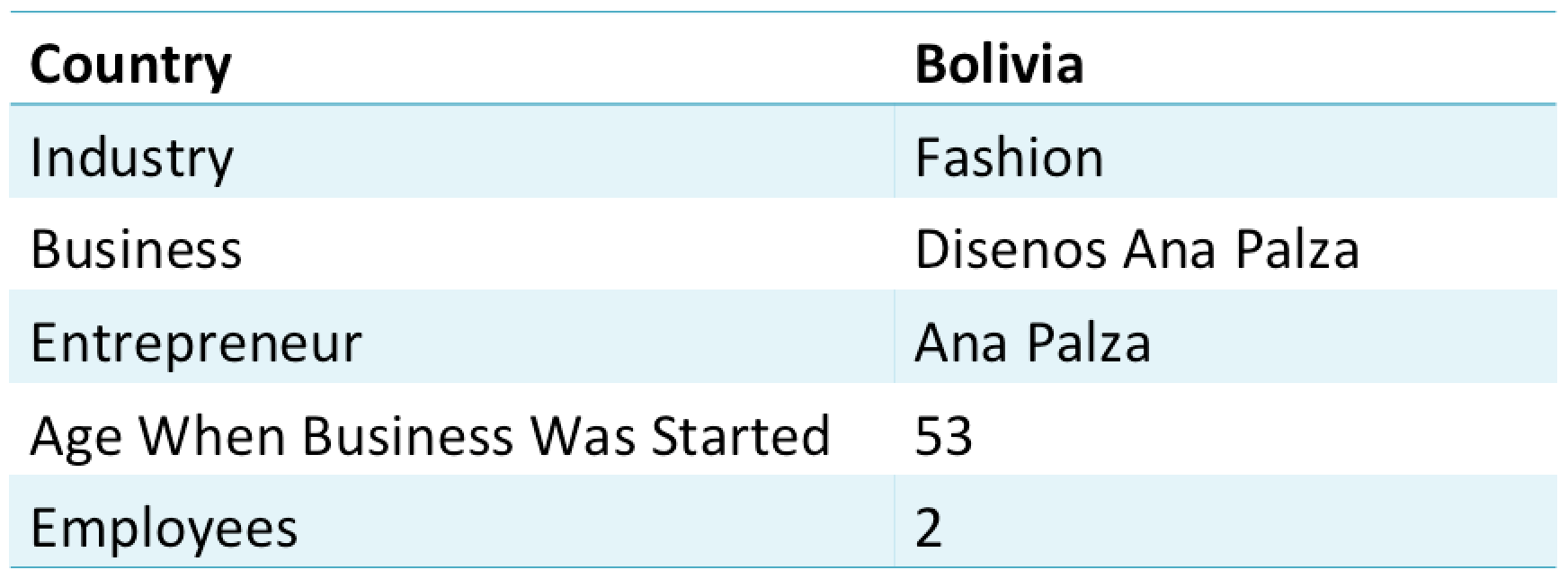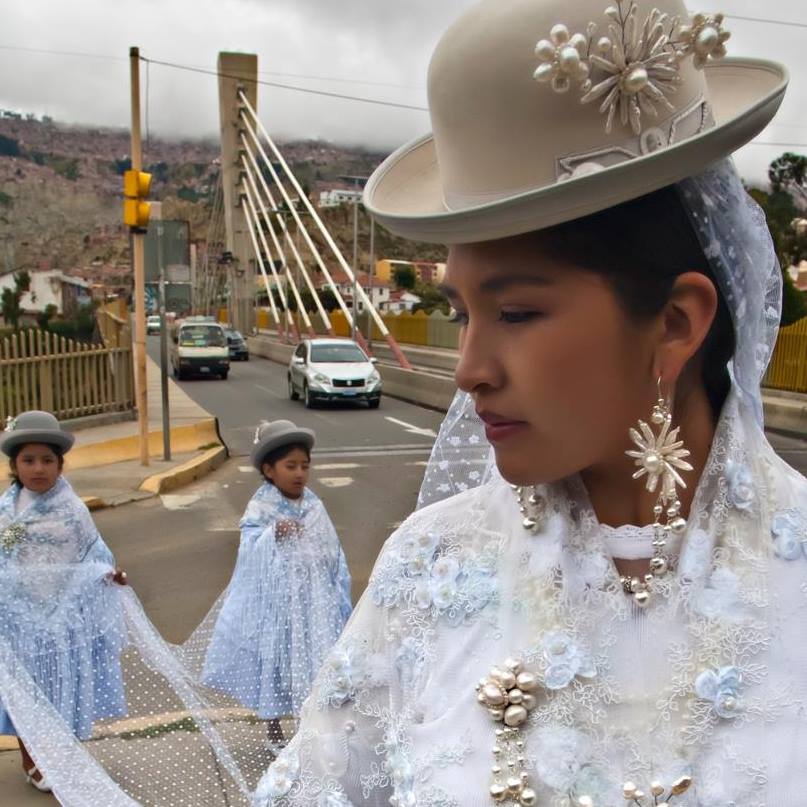The first thing we noticed when we walked into Ana Palza’s design studio, Disenos Ana Palza, were the mannequins adorned in colorful cholita dress, equipped with the iconic bowler hat, plush petticoats, shawl and huge decorative jewelry. Ana is a jewelry designer for Cholita fashion, the style worn by Cholas or Cholitas (the common term given to Bolivian indigenous women).
“It wasn’t too long ago when Cholitas would have been shamed for the way they dressed. They were discriminated against in their education, job opportunities and were even banned from certain parts of the city. Now, Cholita fashion is huge and even non-indigenous Bolivians are taking part, like me.” Ana participates regularly with the numerous fashion shows in La Paz, featuring solely Cholita dress. But, the biggest time in Cholita Fashion is Gran Poder, a two week long Christian religious celebration observed by the indigenous community in La Paz.
A big reason why Cholita fashion has become a movement in Bolivia was the presidential election in 2005 when Evo Morales, Bolivia’s first indigenous president was elected for the first time. His two terms has ushered in pride for Bolivian roots and reduced social injustice. The president was elected for a third term on January 22, 2016 (historically only two, five year terms have been legal).
“Fashion is seriously important to Cholita culture. It’s a huge status symbol. Wealthier Cholitas will spend up to 3,000 USD on a piece of jewelry and that doesn’t even begin to cover the expenses regarding their skirts, hat and shawl.” Cholita women who can’t afford a 3,000 jewelry set which includes earrings, pin for their bowler hat and shawl, can rent the jewelry at a lesser cost if they have the money, or settle for cheaply made copper jewelry (keep in mind, minimum wage in Bolivia was set at $215 a month in 2014). Ana is exploiting a middle of the road approach. “Our jewelry sets are about $300 and are handmade by Bolivians.”
It’s also important to Cholitas that they own a unique set of jewelry. The look of the jewelry is fiercely guarded secret in case competing women copy the style.
Ana has been in the jewelry business for 15+ years, starting when her sister and former business partner traveled to China and brought back Chinese styled and priced jewelry back as a gift for Ana. They quickly started a jewelry import business in Zona Sur (The wealthy district in La Paz) and employed over 15 women to help sell and create elaborate pieces. “But, like all good ideas, it was soon copied by other entrepreneurs. Margins slipped, we starting laying people off and eventually closed down the business.”
Two years ago, Ana started Disenos Ana Palza. “We are the only option available in Cholita fashion in the mid-tier price range. But, I know that because we have been successful people will soon start to copy our model. Our competitive advantage is our styles. We mix today’s Cholita fashion with older indigenous styles and modern western flairs. For example, this year our fish and coin jewelry has been very popular.” Ana shows us a special set of jewelry featuring fish (a sign of abundance) and old Bolivian coins. “Pearls have also been a hit.”
“I am very ADD,” admits Ana with a chuckle. “So, I am constantly creating. I think that is a big asset for me. Ideas just fly and I notice new trends all the time. The way my mind works helps me create and helps me stay ahead of the competition.”
Regardless, Ana says, “Entrepreneurs have to be adventurous, risk takers and can’t be afraid of failure.” Her piece of advice for current and wanna-be-entrepreneurs? “Figure out what you love to do and make that your business. If you love what you do, the money will come.”











